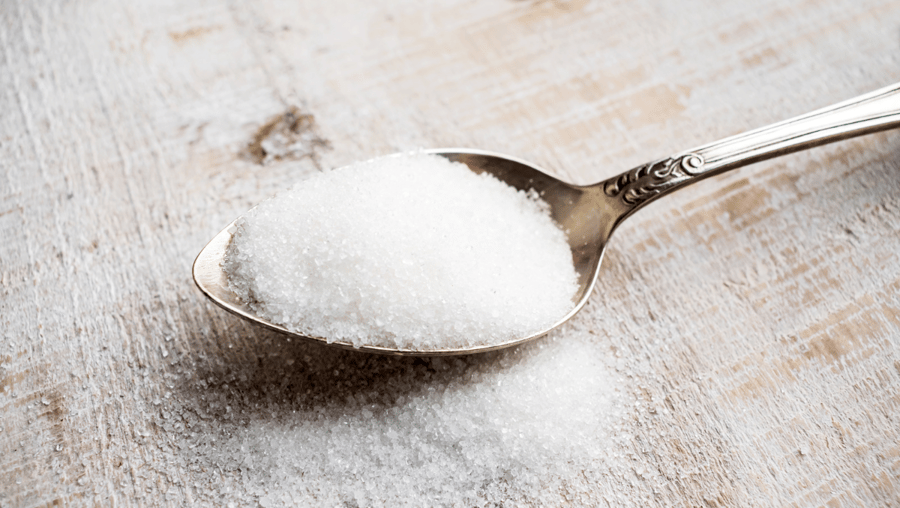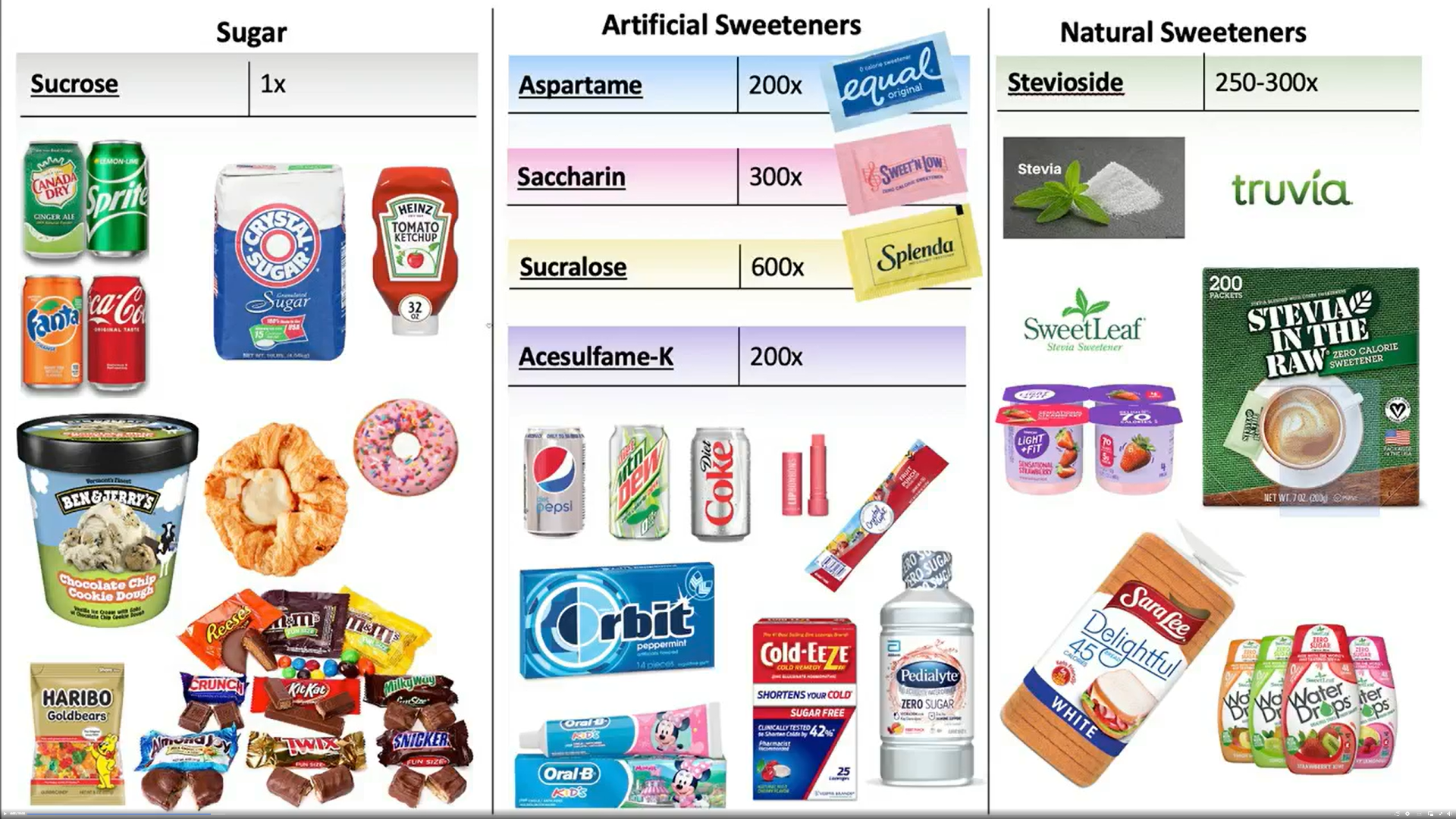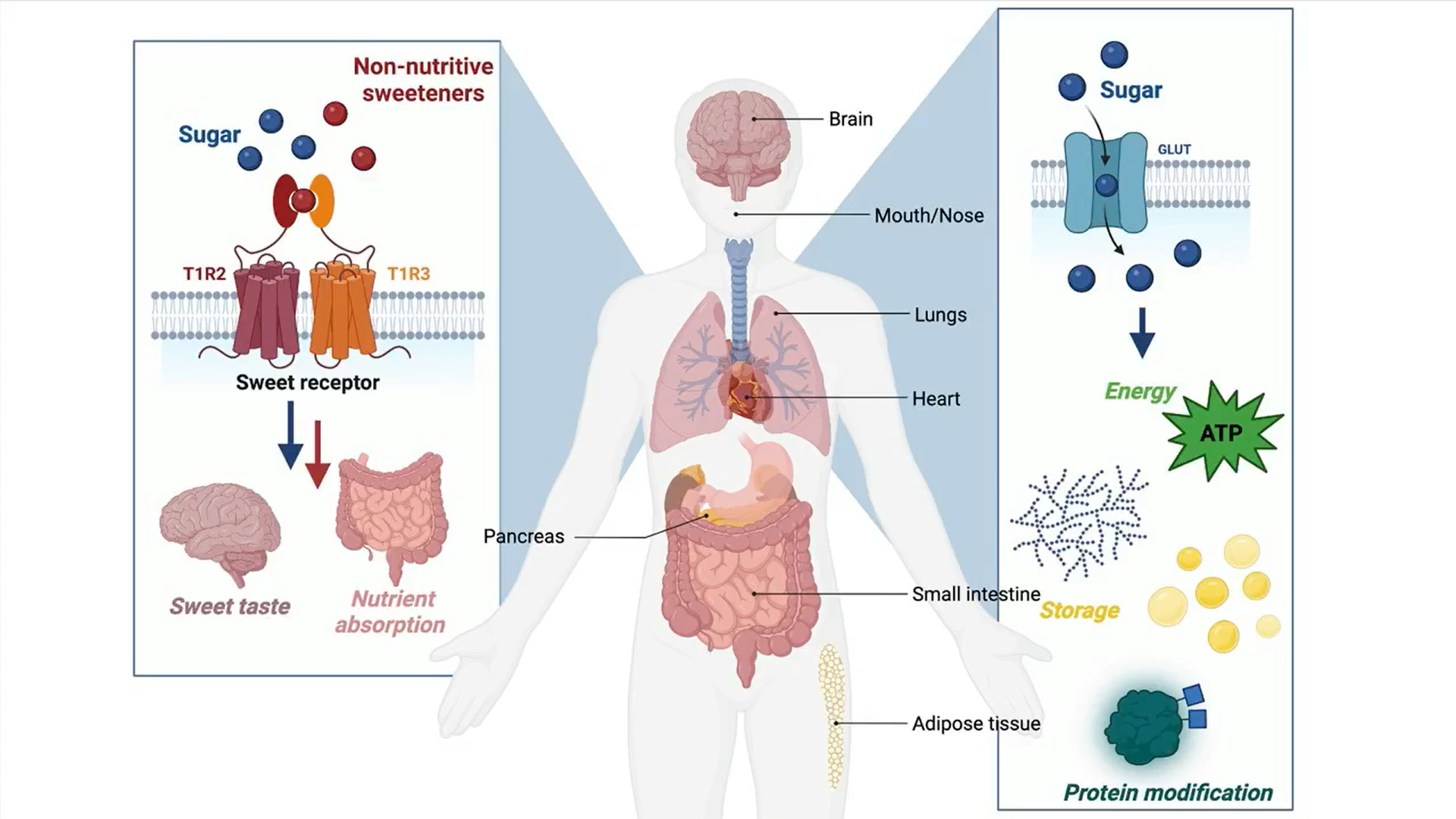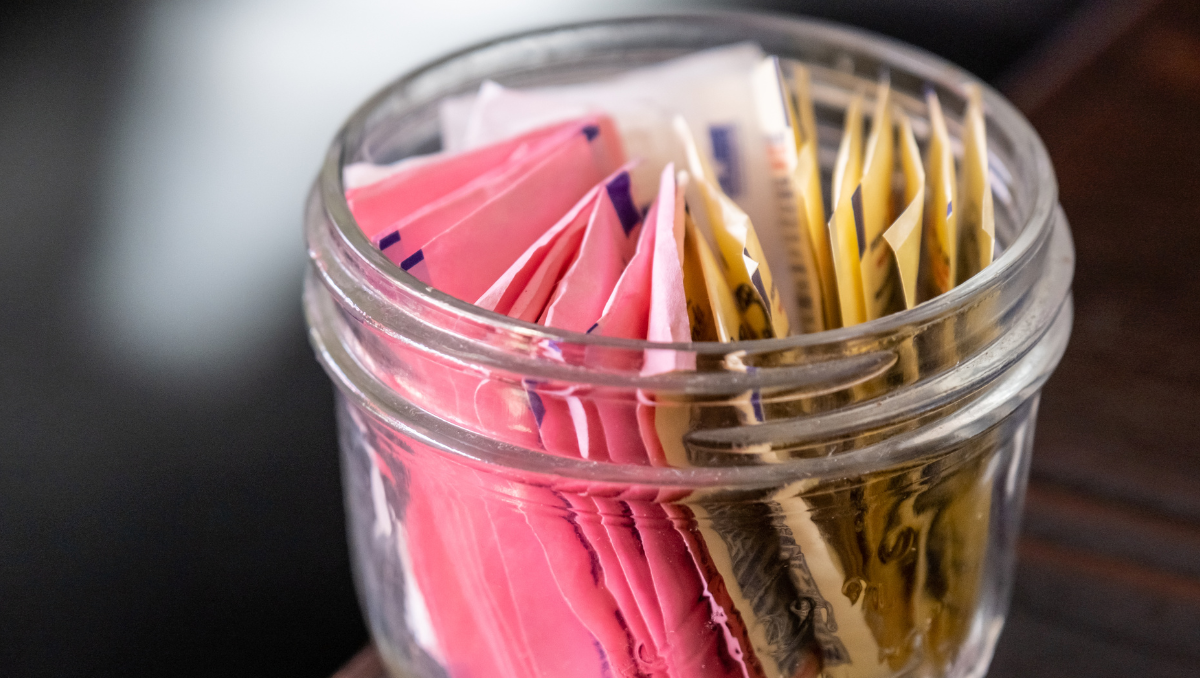Are They Healthy? The Effects of Artificial Sweeteners and Sugar on Our Bodies
August 21, 2023 Posted by AHW Endowment

To explore more Coffee Conversations with Scientists episodes, click here.
Many great-tasting foods and products we use daily have flavors enhanced by sweeteners. But have you ever wondered how the various sweeteners we consume differ, or how your body processes them?
In a recent episode of Coffee Conversations with Scientists, Dr. Stephanie Olivier-Van Stichelen, PhD, Assistant Professor in Biochemistry; Secondary Faculty in Obstetrics & Gynecology at the Medical College of Wisconsin, discussed the science behind sugar, artificial sweeteners, and natural sweeteners, and their effects on our bodies.
What Are Sweeteners?
Sweeteners are used to create or amplify sweet flavors in foods and beverages. They also appear in products you might be surprised to find them in, such as toothpaste and lipstick. The main types of sweeteners are sugar and non-sugar sweeteners (artificial sweeteners and natural sweeteners).
Sugar
When you think of delicious sweet treats and beverages, you are likely imagining a product made with sugar. Sugar—or sucrose—has calories and is a compound composed of fructose and glucose. The sugar in baking sugar, sodas, and other processed foods is usually extracted from sugar cane or sugar beets.
Non-Sugar Sweeteners
Artificial Sweeteners
Artificial sweeteners are a popular alternative to sugar because they have few or no calories, providing options for those who like sweet-tasting foods and beverages but are watching their calorie intake or avoiding sugar. Artificial sweeteners are manufactured, and there are various brands and names used for them. They are used in foods and sweet-tasting products like toothpastes and medicines.

As seen on Coffee Conversations with Scientists Episode, July 31, 2023
Natural Sweeteners
Non-sugar sweeteners derived from flowers and plants, such as the stevia plant or monk fruit, are called natural sweeteners. Like artificial sweeteners, they have few or no calories.
Do Our Bodies Process Sugar and Non-Sugar Sweeteners the Same?
When we consume foods and products with sugar and non-sugar sweeteners, our bodies begin breaking them down and using them for various purposes. While there are some functions that both sugar and non-sugar sweeteners carry out similarly once digested, in other ways, our bodies use them very differently.
One thing that both regular sugar and non-sugar sweeteners do is bind our sweet receptors, which are found in our mouths and all over our bodies. Wherever there is a sweet taste receptor, non-sugar sweeteners and sugar will bind them and signal to the body that it tastes good. It can also signal to our intestines that nutrients that can be used for energy are on the way.

As seen on Coffee Conversations with Scientists Episode, July 31, 2023
“The major difference is that artificial sweeteners and natural sweeteners do not give us calories,” explained Dr. Olivier-Van Stichelen. “Sugar gets absorbed by our cells and eventually gives us energy to function and think. It also leads to storage, either lactogen storage (to use for later energy) or fat storage (long-term storage), as well as direct modification of our brain,” she added.
Can Non-Sugar Sweeteners Help You Lose Weight?
Switching from a diet filled with foods and beverages using sugar to one with no-calorie natural or artificial sweeteners might seem like a no-brainer if you are trying to lose weight. However, as Dr. Olivier-Van Stichelen shared in her Coffee Conversations with Scientists episode, dropping sugar from your diet and replacing it with non-sugar sweeteners is not a long-term weight loss solution.
“Even though on paper that makes sense, it’s not true,” she related. “Many studies have been done over the years, where in a short period (like a couple of months) you will lose weight and drop a bit because you’re likely switching from a heavy-sugar diet to something with no sugar. But for a long-term diet, people don’t maintain that weight loss in the long term. They sometimes even gain weight, depending on the study.”
Though non-sugar sweeteners aren’t a weight loss miracle solution, they are a helpful tool for some. Artificial sweeteners and natural sweeteners give people with diabetes, for example, an option to enjoy sweetened food and beverages without consuming the sugar they need to avoid.
Dr. Olivier-Van Stichelen also mentioned that, in 2023, the World Health Organization (WHO) advised that artificial sweeteners should not be used for weight control. According to WHO, “Replacing free sugars with NSS (non-sugar sweeteners) does not help with weight control in the long term. People need to consider other ways to reduce free sugars intake, such as consuming food with naturally occurring sugars, like fruit, or unsweetened food and beverages… NSS are not essential dietary factors and have no nutritional value. People should reduce the sweetness of the diet altogether, starting early in life, to improve their health.”

Are Non-Sugar Sweeteners Safe for Pregnant Mothers?
When pregnant women consume any food or beverage, it eventually reaches the placenta, where some nutrients and products (including artificial sweeteners) cross more thoroughly than others. According to Dr. Olivier-Van Stichelen, artificial sweeteners have been found in amniotic fluid and cord blood and have been present in newborns. Every sweetener acts differently as it’s absorbed: Acesulfame-K, for example, crosses the placenta better than sucralose.
There is limited information on how artificial sweeteners affect the health of a fetus if consumed while the mother is pregnant. The available research shows that when expectant mothers ingest artificial sweeteners, it can result in changes in the baby’s microbiome. Some association has been found between low birth weights and premature birth in babies whose mothers consumed artificial sweeteners, but further research is needed to confirm the implication.
Do Artificial Sweeteners Cause Cancer?
In July 2023, WHO announced that further investigation is needed surrounding concerns about the artificial sweetener aspartame and its potential link to cancer. The announcement follows several studies exploring the association between artificial sweeteners and liver cancer.
According to WHO, “The assessments of aspartame have indicated that, while safety is not a major concern at the doses which are commonly used, potential effects have been described that need to be investigated by more and better studies.”
“Aspartame is different from other artificial sweeteners because it’s broken down into other molecules,” said Dr. Olivier-Van Stichelen. “Most artificial sweeteners stay intact and don’t change their structure in our bodies. Aspartame is broken down into various compounds.”
Dr. Olivier-Van Stichelen explained that because aspartame breaks down into other products, which can come from other sources in our bodies, it’s challenging to study how aspartame is metabolized. More studies are underway to explore this topic further.
For the time being, WHO recommends keeping the currently acceptable daily aspartame intake of 0–40 mg/kg body weight for aspartame. The committee, therefore, reaffirmed that it is safe for a person to consume within this limit per day. According to WHO, “For example, with a can of diet soft drink containing 200 or 300 mg of aspartame, an adult weighing 70kg would need to consume more than 9–14 cans per day to exceed the acceptable daily intake, assuming no other intake from other food sources.”
Tune into the Coffee Conversations with Scientists episode featuring Dr. Olivier-Van Stichelen, below, to learn more about sweeteners and their effects.



